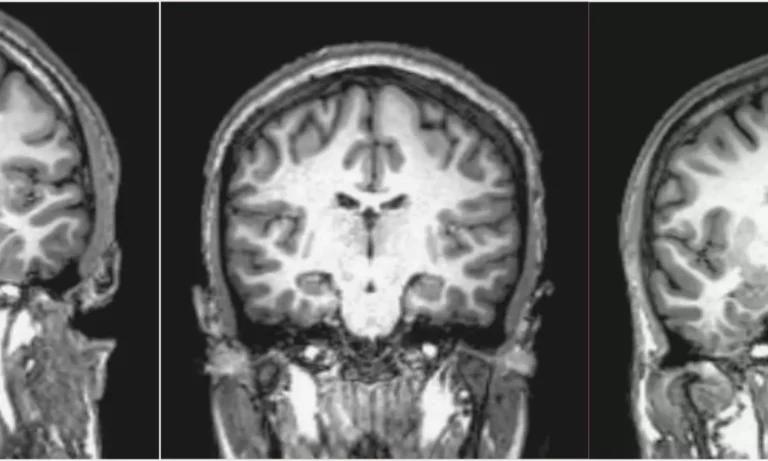Psychosis deeply disrupts an individual’s perception of reality. This mental illness involves a detachment from the world, where hallucinations, delusions, and disordered thinking become the new norm. While often misunderstood and stigmatised, psychotic disorders are a complex challenge faced by millions worldwide. By looking into these conditions, we can better understand the experiences of those affected and explore the latest advancements in treatment and support.
Defining psychosis
At the heart of psychotic disorders lies a fundamental disconnect from reality. This manifests in two primary ways: hallucinations and delusions.
- Hallucinations are sensory experiences that feel entirely real to the individual, yet are not grounded in objective reality. These can take the form of auditory hallucinations, where the person hears voices, or visual hallucinations, where they see objects or entities that do not exist
- Delusions, on the other hand, are firmly held beliefs that are not supported by evidence and are at odds with the consensus of those around the individual. These can range from grandiose notions of one’s importance to paranoid fears of persecution or conspiracy
Alongside these distortions of perception and belief, psychotic disorders often involve disorganised thinking and speech patterns. Individuals may struggle to follow a coherent train of thought, jumping erratically between unrelated ideas or expressing themselves in a manner that is difficult for others to understand.
Causes of psychosis
The origins of psychotic disorders vary, with a range of potential possible causes. Mental health conditions such as schizophrenia, bipolar disorder, and severe depression are among the most common causes, as they can disrupt the brain’s delicate balance and lead to psychotic episodes. However, psychosis can also arise from physical health issues such as a head injury, including neurological conditions, hormonal imbalances, and even certain infections.
Traumatic experiences, whether in the past or present, can also trigger the onset of psychotic symptoms. Severe stress, anxiety, and the misuse of alcohol or drugs have all been linked to the development of psychosis. In some cases, the underlying cause may be a combination of genetic and environmental factors that disrupt the individual’s grasp of reality.
Recognising the early warning signs of psychosis
Identifying the early warning signs of psychotic disorders is crucial, as early intervention can significantly improve outcomes:
- Changes in mood
- Changes in behaviour
- Changes in social interactions
- Withdrawn
- Suspicious
- Emotionally flat
- Difficulty concentrating
- Unusual speech patterns
- A growing sense of disconnection from the world around them
The early stages of psychotic disorders can be subtle and easily mistaken for other mental health issues or even normal adolescent development. Paying close attention to changes in an individual’s thoughts, feelings, and behaviours, and contacting a healthcare provider at the first signs of concern, can make all the difference in ensuring timely and effective treatment.
The spectrum of psychotic disorders
Psychotic disorders encompass a wide range of conditions, each with its own unique characteristics and treatment approaches:
- Schizophrenia is a chronic and debilitating condition that can cause persistent hallucinations, delusions, and cognitive impairment
- Bipolar disorder, on the other hand, is marked by alternating episodes of mania and depression, with psychotic symptoms often manifesting during the manic phase
- Delusional disorder is characterised by firmly held, yet ultimately irrational beliefs that do not significantly impair the individual’s overall functioning
- Schizoaffective disorder combines the symptoms of schizophrenia with mood disturbances, creating a complex and challenging presentation
- Substance-induced psychosis, as the name suggests, arises from substance use disorders, including recreational drugs and prescription medications. In these cases, the psychotic symptoms are directly linked to the chemical imbalances caused by the substances, and treatment often involves addressing the underlying substance abuse issue
Diagnosing psychotic disorders
Accurate diagnosis is essential for effective treatment of psychotic disorders. Trained mental health professionals, such as psychiatrists and clinical psychologists, utilise a comprehensive assessment process to determine the underlying cause of an individual’s psychotic symptoms.
This evaluation typically involves a thorough medical history, family history, a physical examination, and a detailed psychological assessment. The clinician may ask about the individual’s symptoms, their duration and severity, as well as any potential triggers or contributing factors. They may also conduct cognitive tests to evaluate the person’s thought processes, memory, and overall mental functioning.
In some cases, imaging tests, such as MRI or CT scans, may be ordered to rule out any underlying physical conditions that could be causing the psychotic symptoms. Additionally, the clinician may consult the Diagnostic and Statistical Manual of Mental Disorders (DSM-5) to ensure the diagnosis aligns with the established criteria for specific psychotic disorders.
Treating psychotic disorders
The treatment of psychotic disorders typically involves a combination of medication and psychosocial interventions, tailored to the individual’s unique needs and the specific characteristics of their condition.
Antipsychotic medications are often the first method used to help reduce the hallucinations, delusions, and disorganised thinking that are hallmarks of psychotic disorders. These medications work by balancing the brain’s neurotransmitter chemicals such as dopamine.
Alongside medication, psychotherapy can play a vital role in the management of psychotic disorders. Cognitive-behavioral therapy (CBT), for instance, can help individuals develop coping strategies for dealing with their symptoms, challenge irrational beliefs, and improve their overall functioning. Family-based interventions, which involve the participation of loved ones and family members, can also be instrumental in supporting the individual’s recovery and promoting a healthy, supportive environment.
In cases of severe or treatment-resistant psychosis, hospitalisation may be necessary to ensure the individual’s safety and provide intensive, around-the-clock care. These inpatient settings offer a structured and therapeutic environment, with access to a multidisciplinary team of mental health professionals.
Challenges of psychotic illness
Living with a psychotic disorder can be an immensely challenging and isolating experience, not only for the affected individual but also for their loved ones. The symptoms of psychosis can be profoundly disruptive, leading to difficulties in maintaining employment, personal relationships, and overall quality of life.
Individuals with psychotic disorders may also face significant stigma and misunderstanding from the broader community, further compounding the challenges they already face. Addressing this stigma and promoting greater public awareness and understanding of these conditions is crucial in creating a more inclusive and supportive environment for those affected.
Conclusion
Psychotic disorders are complex conditions that challenge our understanding of the human experience. Early intervention is key to the successful management of psychotic disorders. By identifying and addressing the symptoms as soon as possible, clinicians can often reduce the long-term impact of the condition and improve the individual’s life. This may involve a combination of medication, psychotherapy, and the implementation of coping strategies to help the person manage their symptoms and maintain their daily functioning.
Sources
- Overview – Psychosis – NHS
- Psychosis: What It Is, Symptoms, Causes, Types & Treatment
- What is psychosis? – Mind
Medical Disclaimer
NowPatient has taken all reasonable steps to ensure that all material is factually accurate, complete, and current. However, the knowledge and experience of a qualified healthcare professional should always be sought after instead of using the information on this page. Before taking any drug, you should always speak to your doctor or another qualified healthcare provider.
The information provided here about medications is subject to change and is not meant to include all uses, precautions, warnings, directions, drug interactions, allergic reactions, or negative effects. The absence of warnings or other information for a particular medication does not imply that the medication or medication combination is appropriate for all patients or for all possible purposes.








